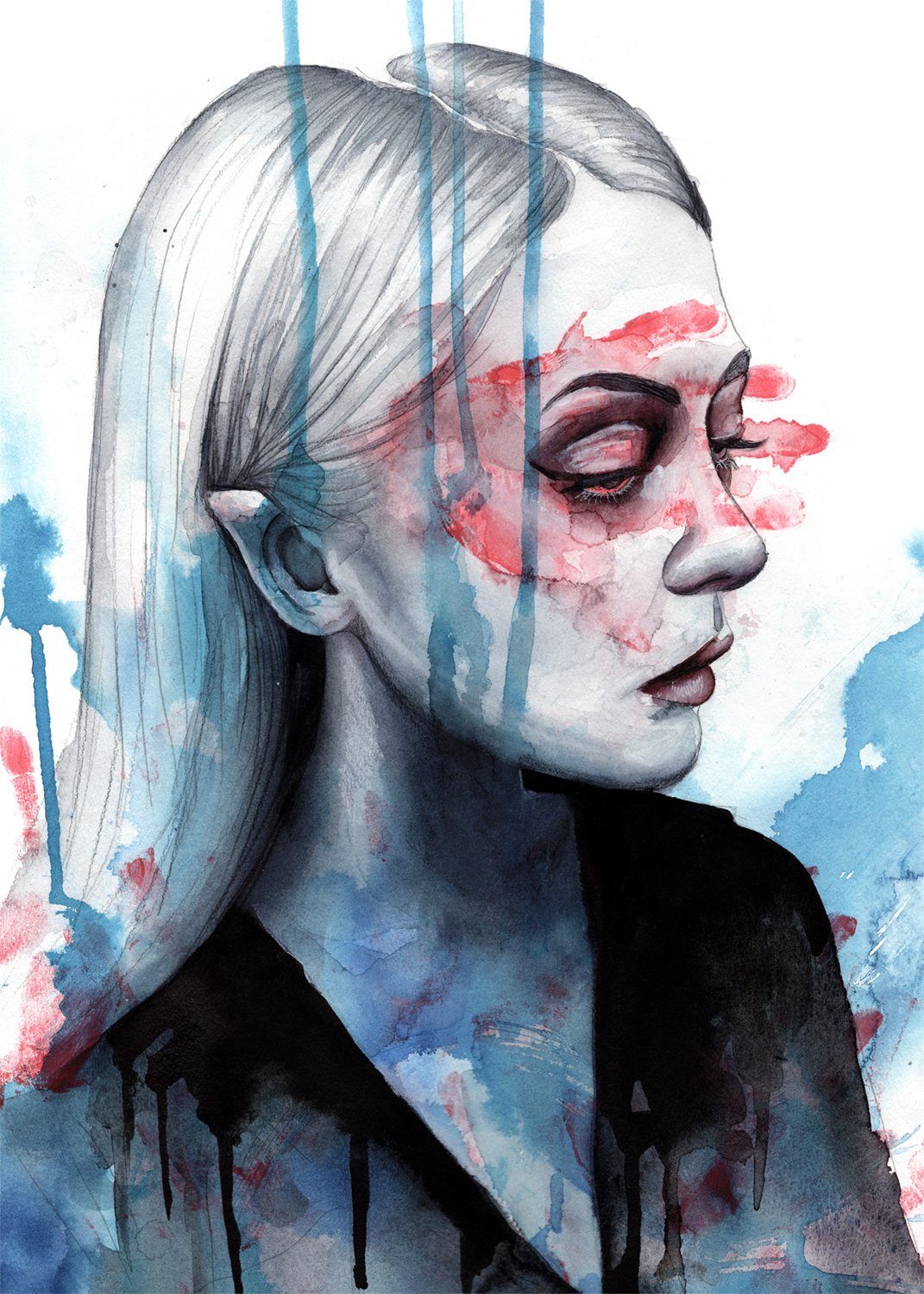 Image 1 of 2
Image 1 of 2

 Image 2 of 2
Image 2 of 2



Hel | Victoria Olt
2020
Handmade watercolor on paper.
18 x 24 in
46 x 61 cm + frame included for free in shipments within Estonia
} Hel {
A daughter of the Norse God of mischief, Loki, Hel was the Goddess of death and the ruler of underworld (or sometimes called the realm of darkness), Niflheim. Her name means “hidden”
Niflheim consisted of several parts: Náströnd, the shore of corpses, a castle that was filled with snake venom, where murderers, adulterers, and others wrongdoers were sent to suffer. Those who died valiantly in battle ended up in Valhalla, but for everyone else there was Hel. Meaning, that Hel was not like the Christian hell, that was reserved for punishment and torment, but a rather more gentle realm.
The Goddess Hel is first mentioned in the 13th century Prose Edda.
2020
Handmade watercolor on paper.
18 x 24 in
46 x 61 cm + frame included for free in shipments within Estonia
} Hel {
A daughter of the Norse God of mischief, Loki, Hel was the Goddess of death and the ruler of underworld (or sometimes called the realm of darkness), Niflheim. Her name means “hidden”
Niflheim consisted of several parts: Náströnd, the shore of corpses, a castle that was filled with snake venom, where murderers, adulterers, and others wrongdoers were sent to suffer. Those who died valiantly in battle ended up in Valhalla, but for everyone else there was Hel. Meaning, that Hel was not like the Christian hell, that was reserved for punishment and torment, but a rather more gentle realm.
The Goddess Hel is first mentioned in the 13th century Prose Edda.







